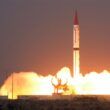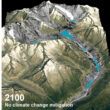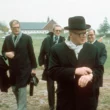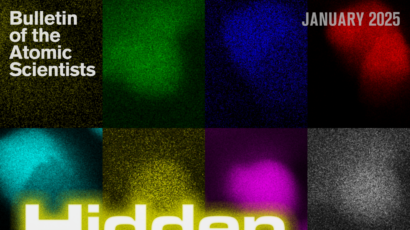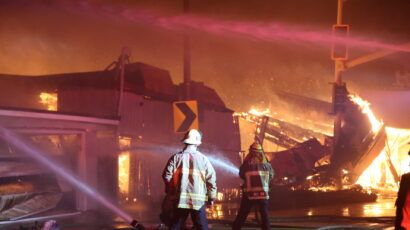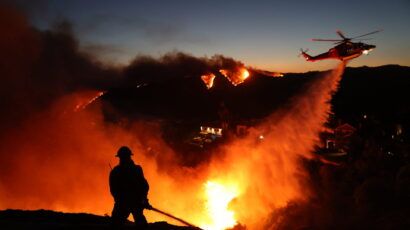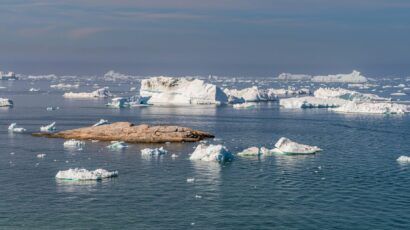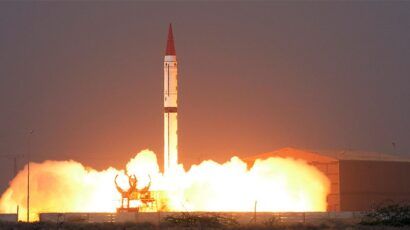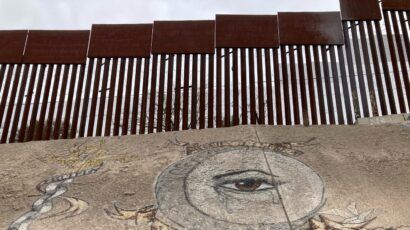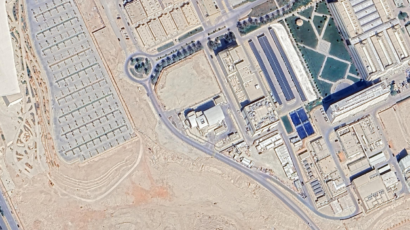Fixing a process in jeopardy
By Mansour Salsabili, June 21, 2013
The cancellation of the 2012 Middle East WMD-Free Zone Conference is not the end of the world. But it could have poisonous effects on policy at the national, regional, and international levels.
Failure to organize the conference is a blow to the integrity of international agreements — above all, to the consensus decision made at the 2010 Review Conference for the Nuclear Non-Proliferation Treaty (NPT) that concrete steps should be taken toward establishing a zone free of weapons of mass destruction in the Middle East. With the failure to follow through on that decision, prospects are darkened for the 2015 NPT Review Conference. Additional delays would jeopardize the entire process of denuclearizing the Middle East, deprive the region of its only specifically designed and internationally supported mechanism for consolidating security through disarmament, and cause regional polarization to grow yet more intense.
Long, slow. In the history of nuclear arms control since 1946, when the United Nations devoted its very first resolution to nuclear issues, two main approaches have dominated: nonproliferation and disarmament. The nonproliferation approach tends to be favored by nuclear weapon states; they wish to prevent additional countries from joining their club. The disarmament approach is usually favored by non-nuclear weapon states. They want to ensure that the distinction between those with and without nuclear weapons does not become permanent.
The difference between the two approaches is plainly visible when one compares the NPT regime to processes for establishing nuclear-weapon-free zones. The NPT, though it is also meant to promote general disarmament and facilitate the spread of peaceful nuclear energy, mainly functions as a nonproliferation mechanism whose most enthusiastic supporters are nuclear weapon states. Nuclear-weapon-free zones, on the other hand, tend to receive their greatest support from developing nations. The 1974 UN General Assembly resolution in favor of establishing a Middle Eastern nuclear-weapon-free zone, for instance, was based on an Iranian proposal.
When the General Assembly passed its resolution, establishing a nuclear-weapon-free zone seemed a timely and perhaps promising project. Just a few years before, in 1969, the Treaty of Tlatelolco had come into force, establishing a zone free of nuclear weapons in Latin America and providing a durable model for similar zones elsewhere. And only a few months before the resolution was adopted, India had conducted its first nuclear test, raising awareness of the risks of proliferation in volatile regions.
But little progress was made toward banning nuclear weapons in the Middle East until the 1995 NPT Review Conference, which produced a resolution encouraging states in the region to take practical steps toward establishing a zone free of WMD. Still later, at the 2010 Review Conference, hopes were raised again when participants agreed on specific measures that might facilitate the creation of a WMD-free zone — including the initiative to organize the 2012 conference. But that initiative has run aground, and all past achievements are called into question.
Still alive? The process still might be revived if a few key steps were taken. The first involves the structure of the initiative itself. Efforts to establish a zone free of WMD in the Middle East are subsidiary to the NPT review conference and are technically under its supervision. This requires that negotiations be conducted only in the framework of the review conferences. But it might be possible to move the process forward if other elements of the UN's disarmament machinery were brought into play. For example, the Disarmament Commission could deliberate on the WMD-free zone under its current agenda and conduct a deep examination of the topic, as it did with nuclear weapon-free zones in 1999. The First Committee of the General Assembly, which also focuses on disarmament and related issues, could do likewise. These steps could increase international awareness of the issue and, in the limited time that remains before the 2015 NPT Review Conference, create political momentum.
Second, in order to moderate the excessive emphasis on nonproliferation that often characterizes the NPT regime, greater emphasis could be placed on Article VII of the treaty — which stipulates that groups of states retain the right to conclude regional treaties assuring the absence of nuclear weapons in their territories. If high-level meetings were organized that used Article VII as an explicit backdrop, regional players might gain breathing space and common denominators might be discovered. In any event, it is necessary at all times to maintain balance among disarmament, nonproliferation, and cooperation in the peaceful uses of nuclear technology.
Third, civil society organizations, and particularly disarmament-related nongovernmental organizations, could make an important contribution to the process. A majority of the NPT's member states are represented in negotiations such as those over the WMD-free zone by diplomats who circulate from posting to posting, and who may have limited knowledge about the history of the negotiations in which they are involved. Diplomats are constantly at risk of devoting time to issues that their predecessors have already covered exhaustively. So civil society organizations could play a simple but critical role by acting as a sort of organizational memory.
But a more fundamental issue needs to be kept in mind as well — that Israel's position among Middle Eastern states is unique insofar as it has not acceded to the NPT. This simple fact goes to the very core of the initiative to establish a WMD-free zone, and if security is to be promoted for all, Israel's status as the only treaty outlier in the region must be resolved. But this project must be approached in a spirit of patience and collaboration.
Topics: Nuclear Weapons
Share: [addthis tool="addthis_inline_share_toolbox"]

